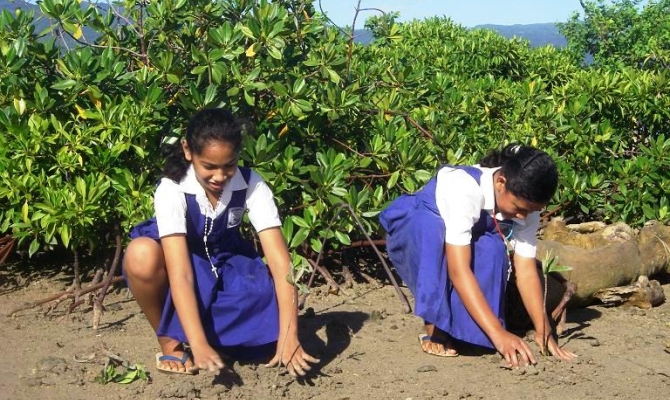
Island and Ocean Ecosystems

Delegates to the 9th Pacific Islands Conference on Nature Conservation and Protected Areas were enlightened on the work done in this area by MARSH – a partnership between communities, the Government, NGO and the International Union for the Conservation of Nature (IUCN) Oceania Regional Office.
"The goal of MARSH is to empower communities and increase capacities of national institutions in the rehabilitation and management of mangrove forests to increase resilience to the impacts of climate change," said Mr. Eric Verheij of IUCN, who is responsible for the MARSH Project.
He told delegates: "The purpose of the MARSH project in PNG is to help communities rehabilitate their mangroves in order to deal with climate change impacts and improve resilience of ecosystems to deal with climate change problems."
At a presentation in Suva, Mr. Verheij said the project had been implemented in at least 30 sites in five "priority provinces" in PNG.
"I hope the communities are aware about the roles of mangroves and they really need some technical support so that they know how to rehabilitate the mangroves in a proper way and need financial support to set up the mangrove nursery," said Mr. Verheij.
There are plans to work with the University of Papua New Guinea to put the issue of mangroves high on their curriculum so they can pass on knowledge about mangrove management development and other costal techniques.
The project is earmarked for implementation in the Solomon Islands and Vanuatu next year.
Shahani Mala is a member of the Media Team providing coverage of the 9th Pacific Islands Conference on Nature Conservation and Protected Areas from 2 to 6 December in Suva, Fiji. This is a partnership between the Fiji National University (FNU), University of the South Pacific (USP), SPREP and Pacific Islands News Association (PINA) whereby a team of 10 journalism students are mentored by senior reporters as they cover the conference. This activity is funded by the Pacific Assistance Media Scheme (PACMAS).